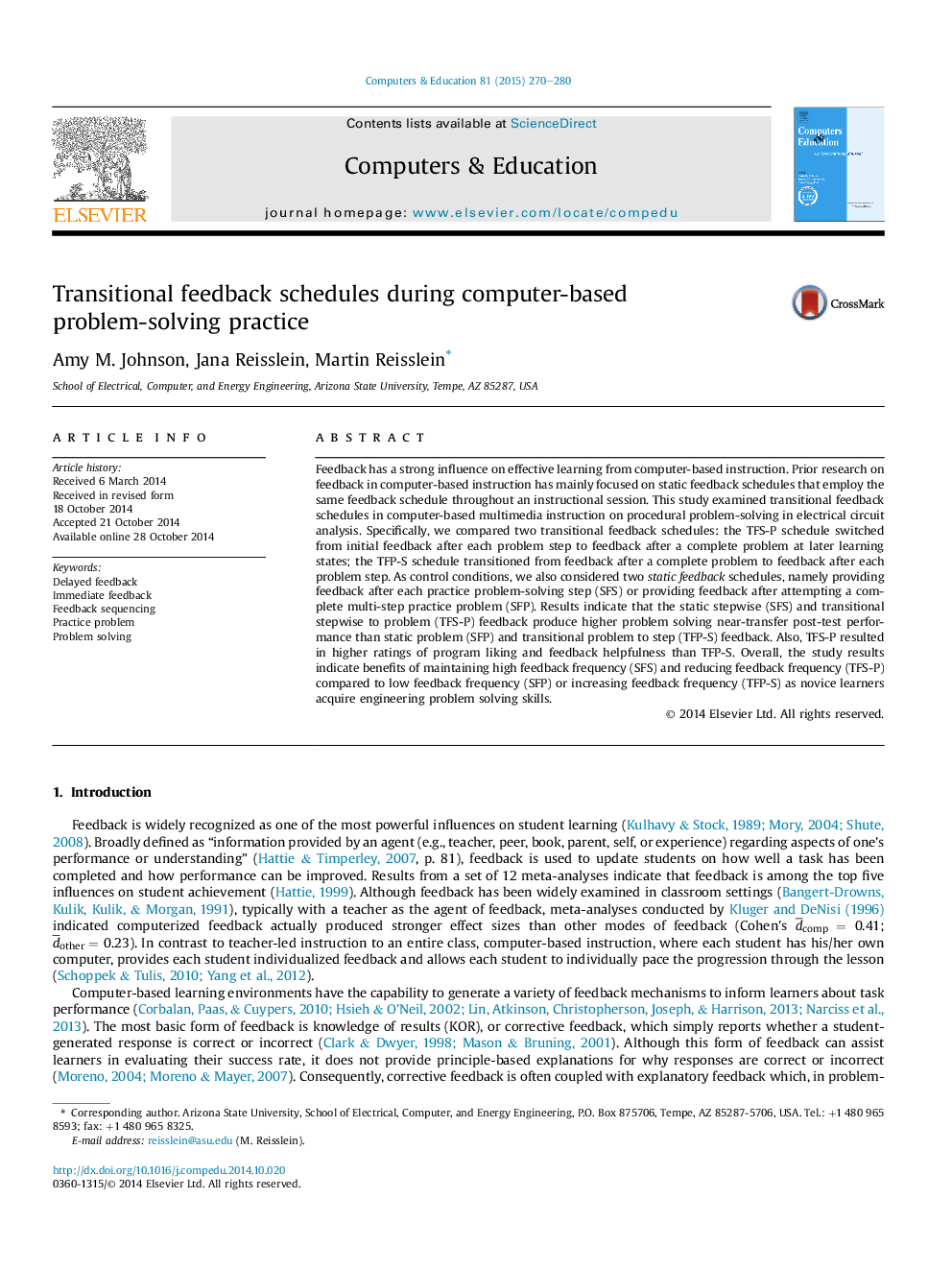| Article ID | Journal | Published Year | Pages | File Type |
|---|---|---|---|---|
| 348342 | Computers & Education | 2015 | 11 Pages |
•An experiment investigated feedback schedules in problem solving instruction.•Static stepwise feedback outperformed problem (summative) feedback on posttest.•Stepwise-problem feedback schedule outperformed problem-stepwise feedback.•Initial stepwise feedback is critical for problem-solving learning by novices.
Feedback has a strong influence on effective learning from computer-based instruction. Prior research on feedback in computer-based instruction has mainly focused on static feedback schedules that employ the same feedback schedule throughout an instructional session. This study examined transitional feedback schedules in computer-based multimedia instruction on procedural problem-solving in electrical circuit analysis. Specifically, we compared two transitional feedback schedules: the TFS-P schedule switched from initial feedback after each problem step to feedback after a complete problem at later learning states; the TFP-S schedule transitioned from feedback after a complete problem to feedback after each problem step. As control conditions, we also considered two static feedback schedules, namely providing feedback after each practice problem-solving step (SFS) or providing feedback after attempting a complete multi-step practice problem (SFP). Results indicate that the static stepwise (SFS) and transitional stepwise to problem (TFS-P) feedback produce higher problem solving near-transfer post-test performance than static problem (SFP) and transitional problem to step (TFP-S) feedback. Also, TFS-P resulted in higher ratings of program liking and feedback helpfulness than TFP-S. Overall, the study results indicate benefits of maintaining high feedback frequency (SFS) and reducing feedback frequency (TFS-P) compared to low feedback frequency (SFP) or increasing feedback frequency (TFP-S) as novice learners acquire engineering problem solving skills.
